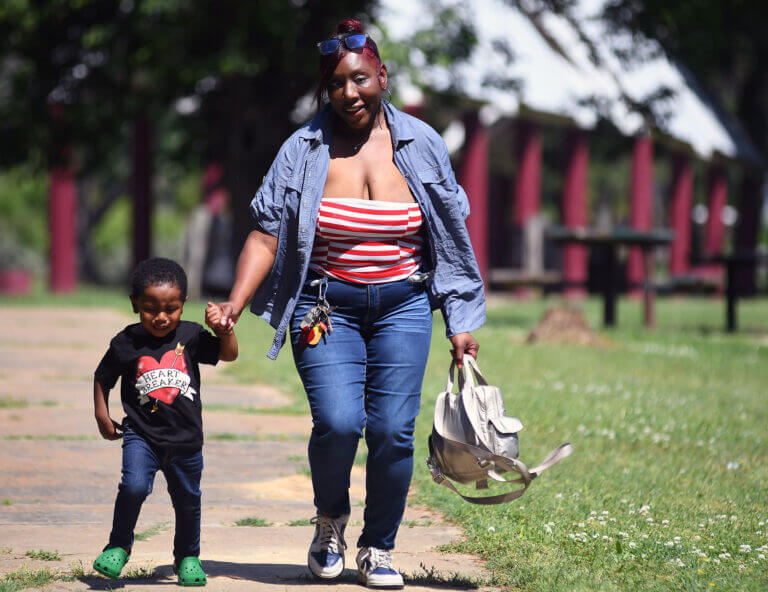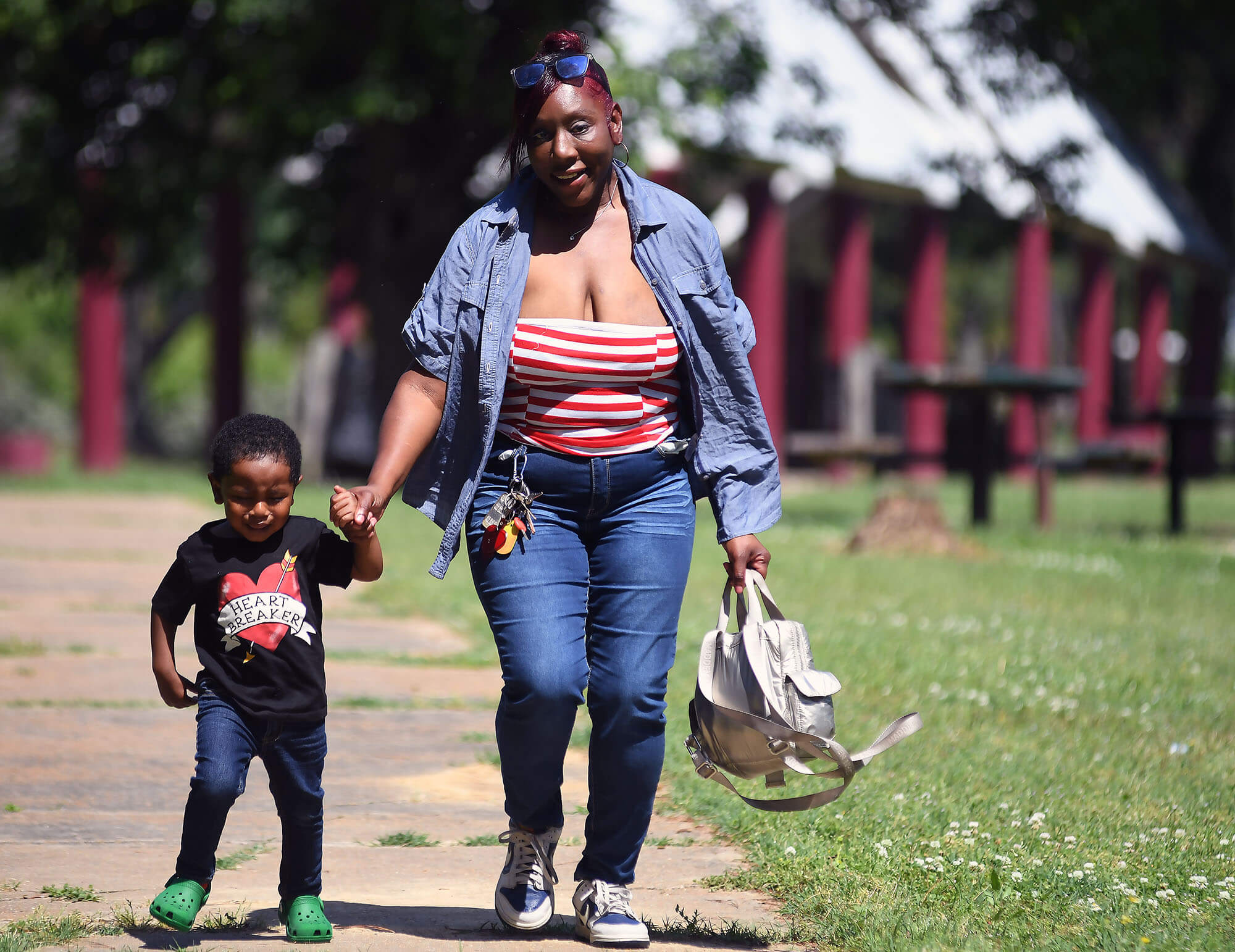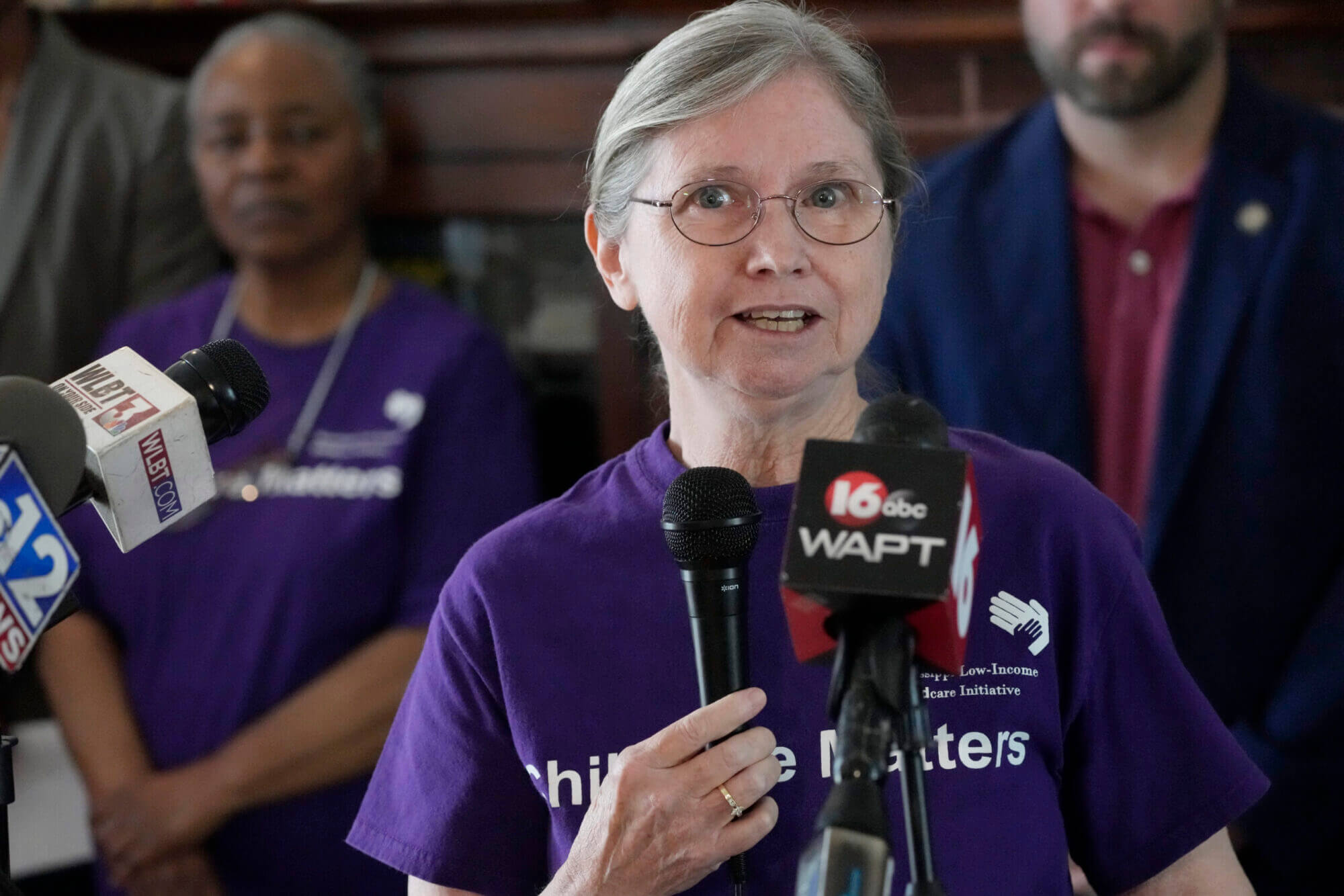

Jackson mom Sequaya Coleman was applying for the first time for a voucher to help pay child care for her 2-year-old son when she heard the news.
She may not be getting any help from the state’s Child Care Assistance Program — at least not for the foreseeable future. The Mississippi Department of Human Services has put a cost-cutting hold on which families could apply.
Without it, Coleman, who works as a housekeeper, continues to rely on her relatives and friends to watch her kids, a 2-year-old and a 12-year-old, instead. She doesn’t know if she’s been rejected, but she is in a grey area. She applied in March, the month before the hold took place.
Beginning April 1, MDHS began limiting who could apply for new applications, redetermination applications, and “add a child” applications for child care certificates.
Families who do not fit one of six priority categories (on or getting off Temporary Assistance for Needy Families, are homeless, have foster children, are teen parents, are deployed military or families with special needs) cannot apply for new certificates or have their certificates renewed. There were 36,186 children with child care certificates in late March, a week before the hold began. About 10,800 did not fit any of the six priority categories.
Coleman is concerned that the lack of child care puts an extra strain on relatives and older children, creates a greater safety risk for young children, and makes it harder for communities to thrive.

“Our kids need the help, we need the help, because if you take the help from the American people, how do you expect us to thrive as Americans? How do you expect us to thrive as a state?” she said.
MDHS is trying to reduce the number of children receiving certificates to fewer than 27,000 to fit what the department can afford since COVID-19 relief funding dried up, with a target program cost of less than $12 million a month, said Mark Jones, chief communications officer for MDHS.
“We cannot accurately estimate how long the hold will remain in place, but we will be monitoring the situation very closely and will lift the hold as soon as we can,” he said.
MDHS will notify parents 60 days before their annual redetermination deadline. Parents who want to be notified can enter their email address in the application portal.
The Child Care Payment Program provides assistance to working parents and guardians for child care. The parent or guardian still has to pay the difference between what the program provides and the actual cost of tuition. They may also have to make a co-payment every month.
According to Jones, Mississippi has dedicated approximately $379.9 million from various COVID-19 relief funding programs to child care since 2020. Mississippi currently spends 85% of its funds from the Child Care Development Fund on child care certificates, which was about $127 million in fiscal year 2024 and more than the federal minimum they’re required to spend.
Mississippi also transfers 30% of its annual state funds from the Temporary Assistance For Needy Families program to child care. In 2024, that amounted to $25.9 million.

Carol Burnett, executive director of the Mississippi Low Income Child Care Initiative, explained the financial impact for families: “The CCPP can reduce the cost of child care by as much as 80%. And so if a family is gonna have to pick up what the CCPP has offered, it’s gonna really increase the cost of child care for that family.”
MLICCI’s Employment Equity for Single Moms program helps single mothers in Mississippi access resources for child care and workforce development to help single moms find higher-paying work.
A key part of the program is helping these mothers get on the Child Care Payment Program. MLICCI usually covers child care costs for its mothers while they wait to get assistance. Without the assistance, MLICCI can’t afford to pay for long-term child care.
“The biggest chunk of families on CCPP are low-income, single-mom-headed families who are working in jobs with low wages, and they’re not one of the six priorities,” said Burnett.
In addition to the financial impact on families, the hold on applications would disrupt education for children during a crucial period. Research has shown that children who attend quality early childhood education have better academic performance in elementary school.
“Without the CCPP vouchers, many families will not be able to afford child care, and so it’s likely that families’ child care arrangements will become unpredictable and piecemeal…and this uncertainty can cause children stress, which can hinder their development and growth,” explained Biz Harris, executive director of Mississippi Early Learning Alliance.
Deloris Suel, who owns Prep Company Tutorial Schools in Jackson with her husband,said she thinks parents would be able to teach their children at home with the right training, but it would be a strain on top of their other responsibilities.
“Child care today is not a babysitting service. There’s benchmarks and goals that we have to meet,” she said.
Prep Company Tutorial Schools serves 260 children, 61 of whom have child care certificates. Only two of their students fit among the six exception categories MDHS listed.
Last week, a group of child care providers, parents and child care advocates held a press conference on the south steps of the Capitol, urging MDHS to lift the limits on new applications and redeterminations, communicate better with providers and families, and use the current and carry-over TANF funds to supplement the child care voucher program.
At the end of 2023, MDHS had over $156 million in unspent TANF funds, as other states do. Nationwide, states had unobligated TANF balances of nearly $8 billion in 2023. Spending this money on child care would be doable without legislative action, MLICCI said, and has already been done in other states.
Burnett said she does not know why the state hasn’t used this method of funding. “I mean you would think that they would want to do that when they have the money rather than create this harm for so many families,” she said.
When asked why she thinks MDHS has been hesitant to use the available TANF funds, she said “I have two words: ‘Republican state.’ Because if we have other states joining hands to say, ‘Hey, we can pull this down from here.’ Why can’t Mississippi?”
When asked about using unspent TANF funds in this way, Jones responded, “MDHS is committed to following official federal guidance regarding conversion of TANF funds to CCPP. MDHS is resolved to utilize all available recurring revenue streams to support the CCPP and ensure the long-term viability of the program.”
Jones would not comment on why the department will not use left-over TANF funds.
Jones also stated, “MDHS has discussed the potential for a pause in CCPP certificates with the child care industry each month during the information sessions. The members of SECAC (State Early Childhood Advisory Council) were well aware of this potential pause as far back as 2023.”
Families can call the Child Care Payment Program call center at 800-877-7882 for questions or reach out to their nearest Resource & Referral Center for help.
Anna Wolfe contributed to this report.
Update 4/29/24: This story has been updated to clarify that the Department of Human Services has not responded to Sequaya Coleman’s application.
- Mississippi Marketplace: data center ups and downs, alcohol shortages and new manufacturing projects - February 19, 2026
- More Mississippi students are graduating despite pandemic-era disruptions, new data shows - February 19, 2026
- Education advocates says Mississippi needs honest, nuanced school choice discussion - February 19, 2026